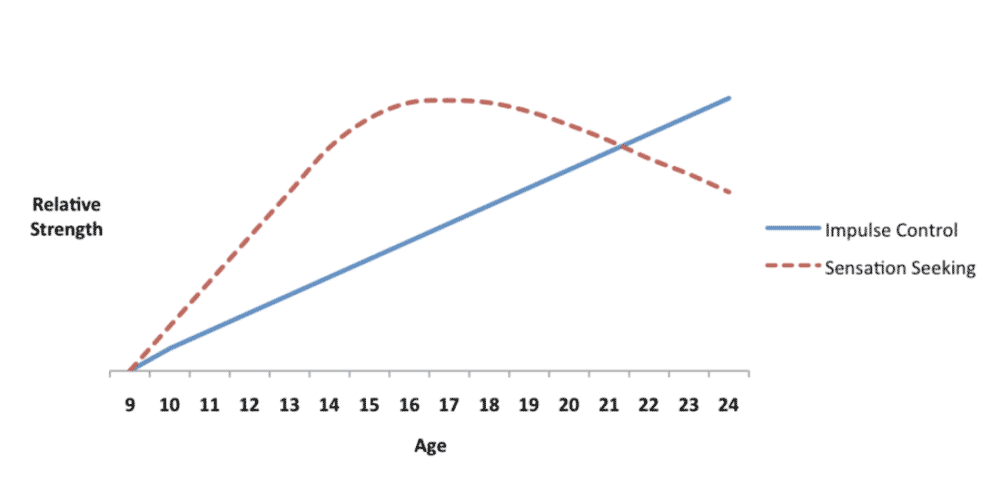Perfect Storm
On cell phone usage and self-control in teenagers.
2018-8-26 | Self-control

This fall, cell phone use in French schools is officially prohibited for students at all grade levels, from elementary through high school.
The ban on phones raises an interesting philosophical dilemma. On one hand, prohibiting phones curtails personal freedom. This is the argument undergraduates make to me when, politely, I suggest they not use their cell phones or laptops during lectures.
On the other hand, cell phones are about as potent a distraction as one could dream up for adolescents, whose developing brains haven’t quite gotten the hang of impulse control and, as evolutionary fate would have it, are at their lifetime peak for sensation seeking and reward sensitivity.
In other words, adolescence is a perfect storm for failures of self-control.

I see both sides of the issue, but I stand resolutely with those sage French officials.
All too often, young people know not what they do. The majority of teenagers believe that multi-tasking has no impact on their academic work when, in fact, laboratory research shows that multi-tasking slows learning. Likewise, teenagers might be surprised by a recent two-year longitudinal study showing that frequently checking social media, texting, and otherwise engaging with electronic devices predicts subsequent increases in ADHD. And it’s fair to say that most teens are unaware that schools that institute bans on cell phones realize sizeable increases in standardized achievement test scores, particularly among their underachieving students.
Freedom can be its own tyranny, and personal rules are sometimes our only salvation. Such is the case with self-control, wherein our own impulses are our greatest enemy.
My friend Tiffany Shlain has two children. Each Friday, beginning right before dinner, they observe a Technology Shabbat: 24 hours without cell phones, TVs, and computers for everyone in the family, including Tiffany and her husband. The effect, she says, has been transformational. Without devices to distract, real conversation ensues. Questions are discussed, not googled. Life isn’t lived through a Snapchat filter.
What’s more, the six days of the week when technology is freely available, she says, “helps us really appreciate the beauty of the Internet.”
At some point, kids need to take control of their own lives. They need to make their own choices, for better or worse, and to learn from the consequences of those choices.
But during the perfect storm of adolescence, rules enforced by schools and parents provide a much-needed safe harbor.
With grit and gratitude,
Angela
We’d love to know your thoughts after reading our Tips of the Week. Check the following boxes if applicable: